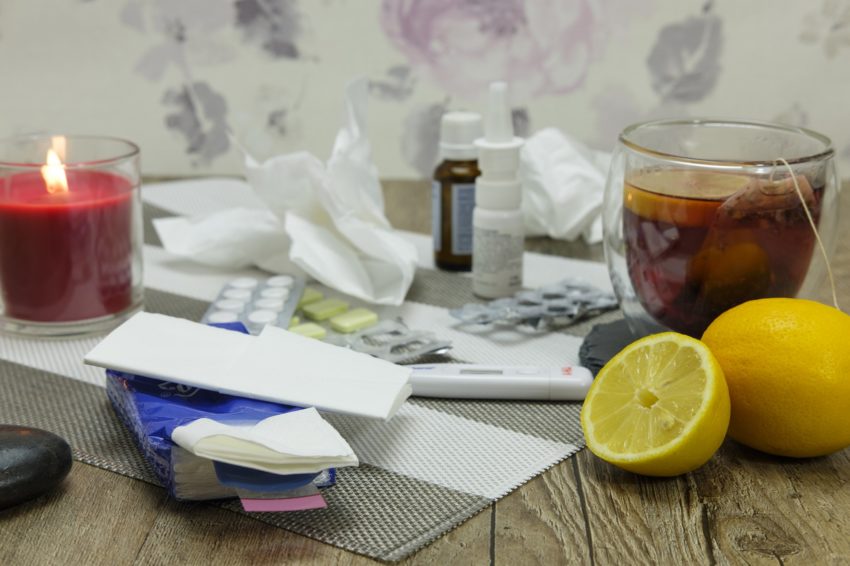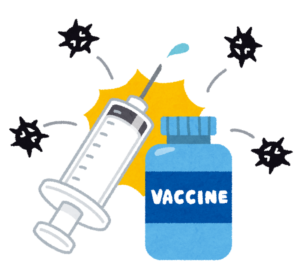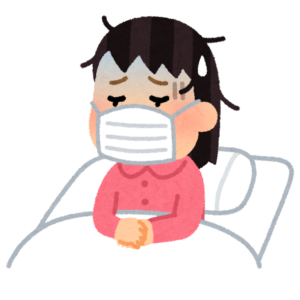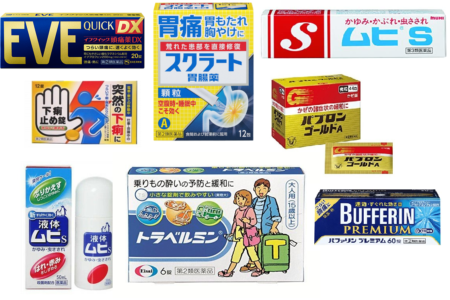Be Prepared: Flu Season in Japan

CONTENTS
Winter is coming, but are you ready? Like much of the northern hemisphere, seasonal influenza is an annual occurrence throughout Japan from November through April. What makes the Fall/Winter 2020 version different is the ongoing COVID-19 pandemic. With people already exercising additional caution to avoid spreading one virus, it’s easy to think chances of catching the flu will decrease this year. Hopefully, that’s the case.
Whatever happens, it’s always good to be prepared, and the following tips are useful every year, whether you’re in Japan or around the world. So here’s our top 4 ways to stay healthy over these next few months.
Get the Annual Flu Shot
 Getting the yearly flu vaccination is a great way to help bolster your defenses against infection. It’s fast, easy, and relatively inexpensive in Japan. The vaccine is not mandatory under the Ministry of Health’s policies, so you will need to sign up and pay for it separately (this also applies for children if you are also getting them vaccinated). The easiest way to get a flu shot ASAP is at your local clinic; larger hospitals tend to only offer it on designated days.
Getting the yearly flu vaccination is a great way to help bolster your defenses against infection. It’s fast, easy, and relatively inexpensive in Japan. The vaccine is not mandatory under the Ministry of Health’s policies, so you will need to sign up and pay for it separately (this also applies for children if you are also getting them vaccinated). The easiest way to get a flu shot ASAP is at your local clinic; larger hospitals tend to only offer it on designated days.
At the clinic, fill in the necessary paperwork (a special booth or counter may be set up for it). Note that the clinic may have a set time period during the day when they administer the shot, and also have temporarily limited quantities of the vaccination (until more stock arrives). While some clinics let you just walk in and just receive it, others may require reservation in advance.
Remember that the flu vaccine is good for a year, so you will need to receive another dose annually. Side effects are minimal, but it is good to be aware in advance. For more information getting vaccinated, see the Ministry of Health’s guide.
Exercise Caution & Common Sense
 After months of life under the coronavirus, exercising common sense should hopefully be a facet of everyday life for most. Wear masks, try to minimize direct contact with others, and frequent hand washing/gargling are all musts. As influenza can enter easily through the eyes, avoid rubbing your eyes directly with your hands; carrying pocket tissues at all times is highly recommended.
After months of life under the coronavirus, exercising common sense should hopefully be a facet of everyday life for most. Wear masks, try to minimize direct contact with others, and frequent hand washing/gargling are all musts. As influenza can enter easily through the eyes, avoid rubbing your eyes directly with your hands; carrying pocket tissues at all times is highly recommended.
Given the current climate of precaution, it may be easier than usual to avoid getting common colds or influenza, but it’s best to remain vigilant; both will still be spreading around in the coming months, regardless of new developments in the fight against COVID-19.
Eat Flu-Fighting Foods
 You are what you eat, and eating healthy foods can help boost your immune system, making you less susceptible to infection. Some foods you can add to your diet to increase immunity include carrots, eggs, Kiwi fruits, almonds, kale, ginger, mushrooms, garlic, pumpkin seeds, and that old favorite, chicken soup.
You are what you eat, and eating healthy foods can help boost your immune system, making you less susceptible to infection. Some foods you can add to your diet to increase immunity include carrots, eggs, Kiwi fruits, almonds, kale, ginger, mushrooms, garlic, pumpkin seeds, and that old favorite, chicken soup.
In general, hot drinks are a great early way to deter illness. Drinking something hot with lemon or honey in it is highly recommended during the initial stages (especially if you have a sore throat) and can sometimes work to lessen the impact of the common cold. Additionally, drink plenty of water.
Know the Warning Signs
 In the event you do start feeling under the weather, familiarize yourself with the initial symptoms of influenza to know whether or not it really is the flu or simply the common cold.
In the event you do start feeling under the weather, familiarize yourself with the initial symptoms of influenza to know whether or not it really is the flu or simply the common cold.
Generally, the latter begins with a sore throat, escalating into a cough, runny nose, and bouts of sneezing. Initial flu symptoms are usually (but not limited to) headache, fevers over 38°C, and fatigue. Generally, fevers for colds are lower than for influenza.
Once you have determined it’s more than a cold, the big question is whether it’s seasonal influenza or COVID-19. A few symptoms present with COVID-19 infection that are generally not typical of the flu include shortness of breath or difficulty breathing, repeated shaking with chills, and sudden loss of taste or smell. At this stage, getting tested ASAP is the best way to determine what comes next. If you do have the flu, you may be prescribed medication and asked to self-quarantine.
Ultimately, as with any medical matter, the best thing you can do is to stay informed and educated. And you can do that right now! We hope you’ll stay safe and healthy over these coming months, and start 2021 off at your best!
Photo Credits:
Additional photos provided by Irasutoya
All other content (text) created by the original author and © 2020 MUSUBI by Borderlink
RELATED
-

A Layman’s Guide to Japan’s Health Insurance System
Top Image: Hadesさん on PhotoAC Health Insurance in Japan can sometimes seem like a real pain in the neck, but i… -

Corona Fear: How Japan is Coping
Top Image: danielbichler on Pixabay 2020 will be defined by any number of things, but no doubt the COVID-19 pa… -

Must-Haves: Medicines at the Drugstore
Top Image Courtesy of Kristine Mayor When it comes to first aid in the home, it’s always best to be prepared w…
PEOPLE

The MUSUBI Staff
Collaborative works put together by our many talented writers and editors!


